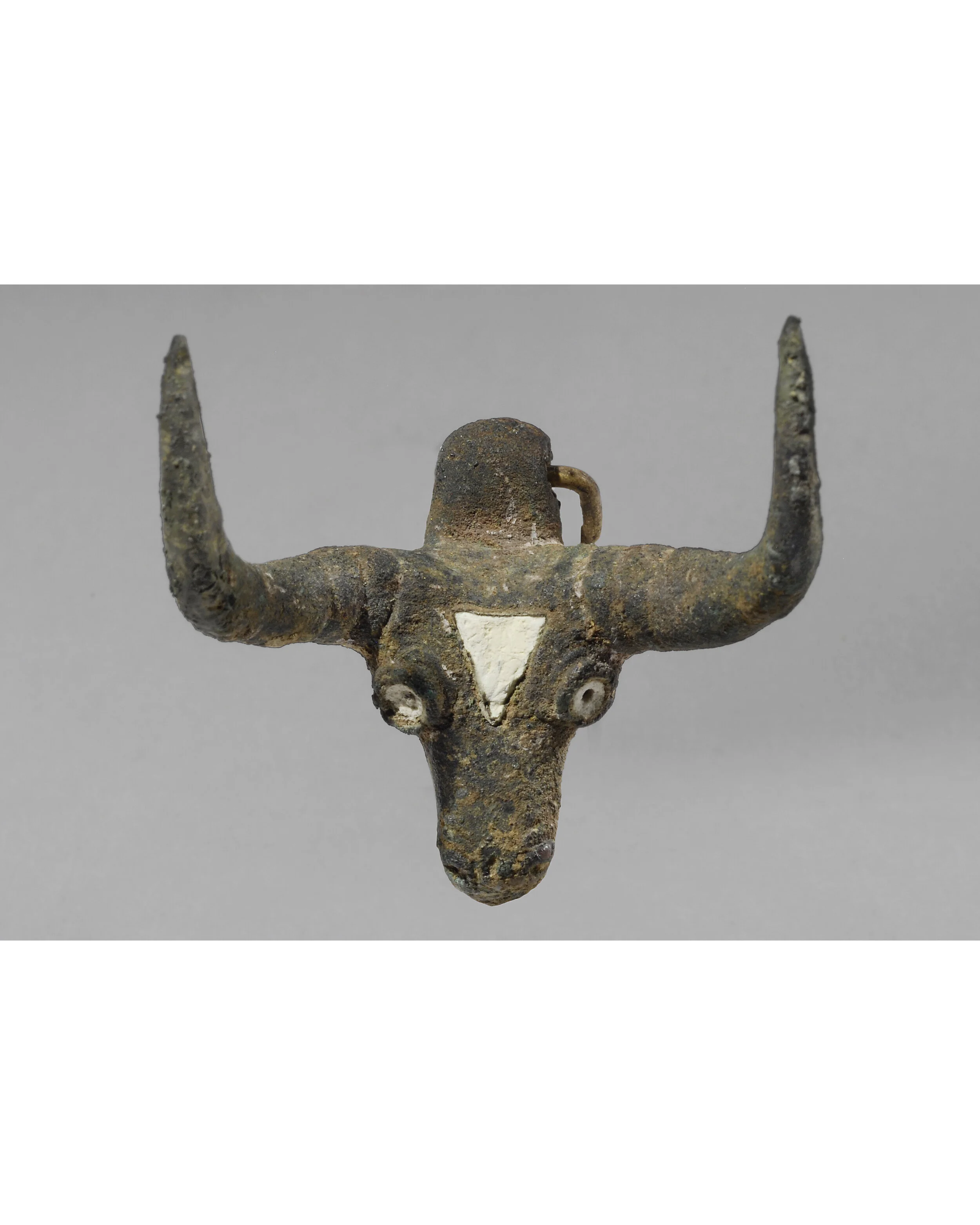Ancient South Arabian Alabaster Ibex
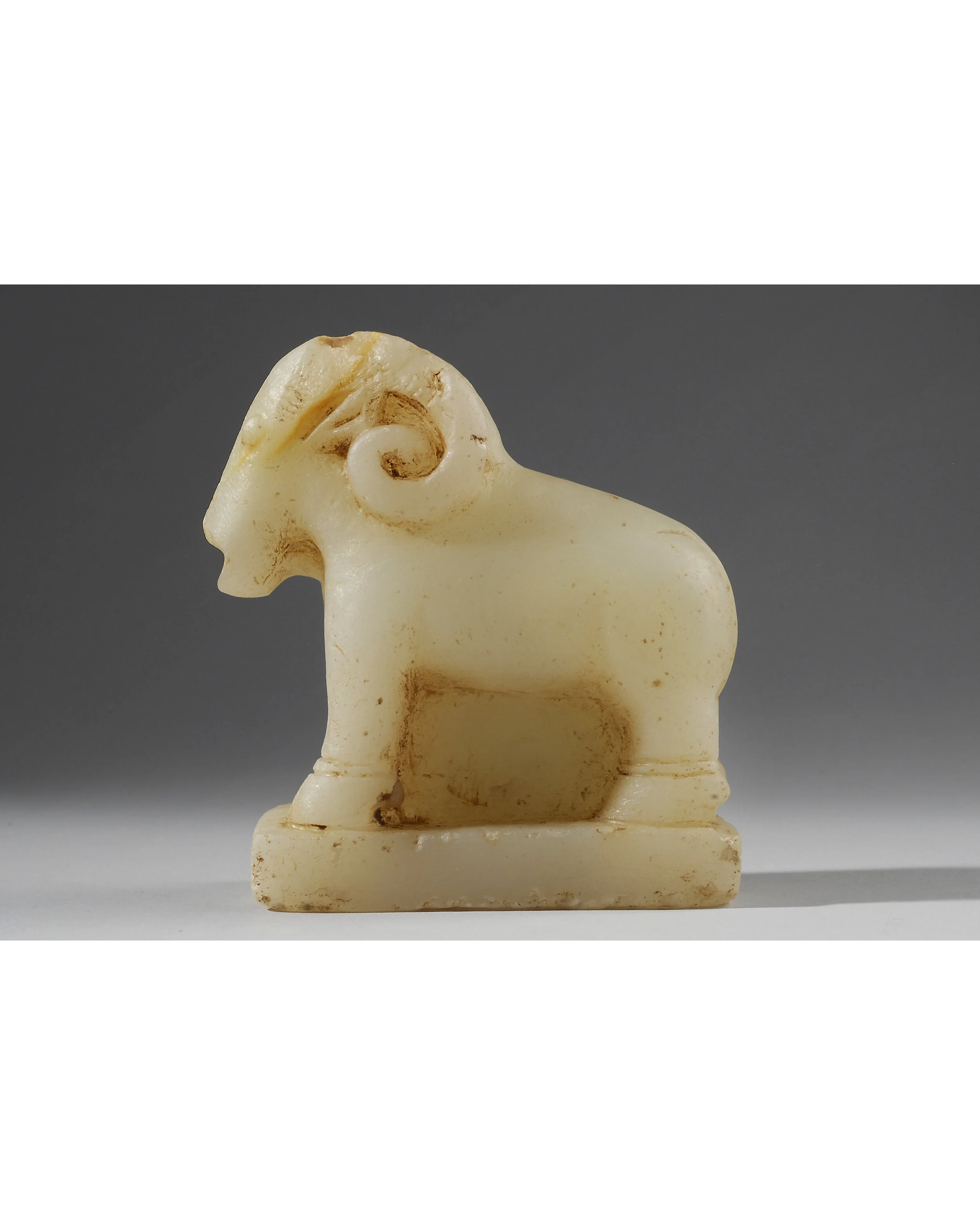
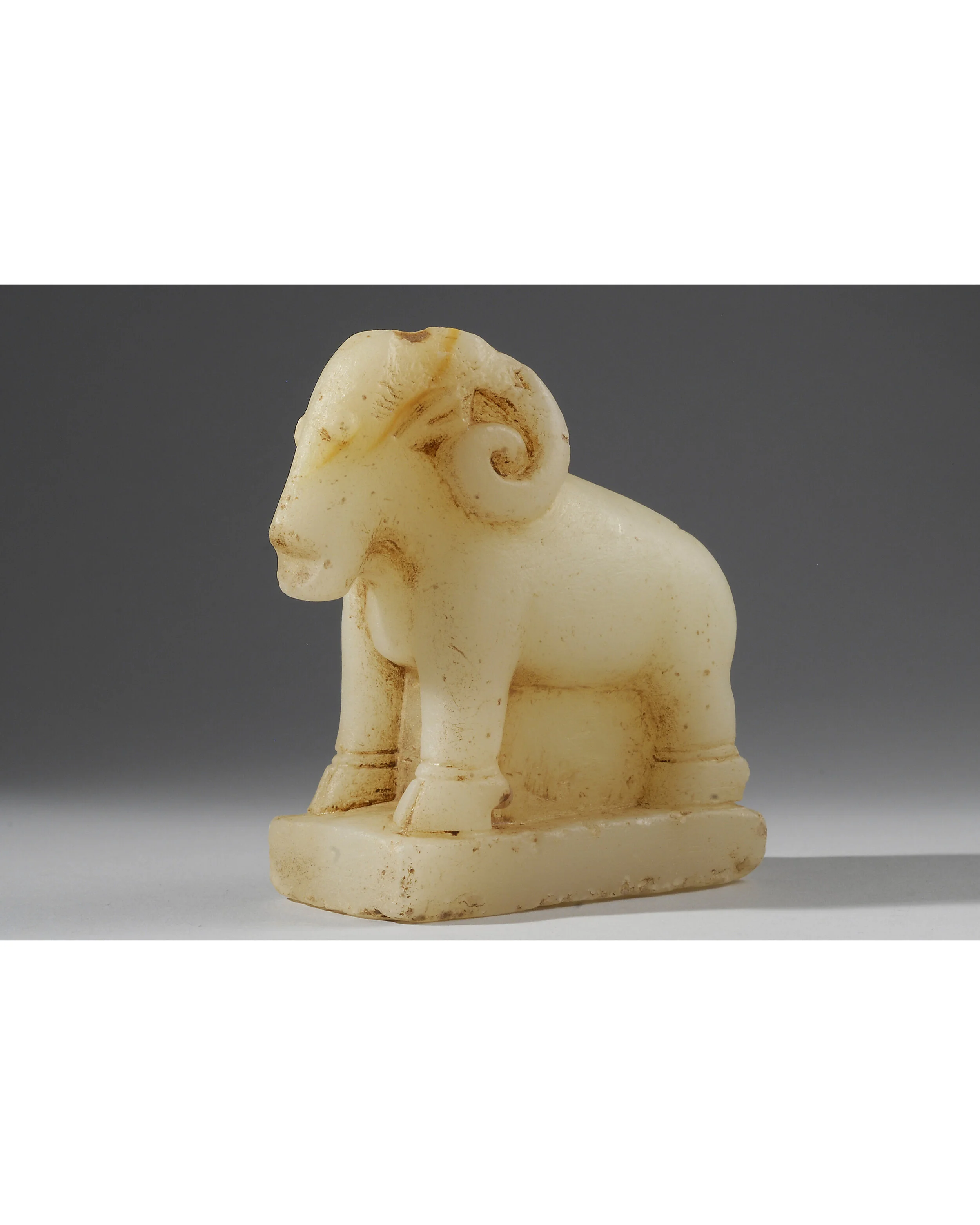
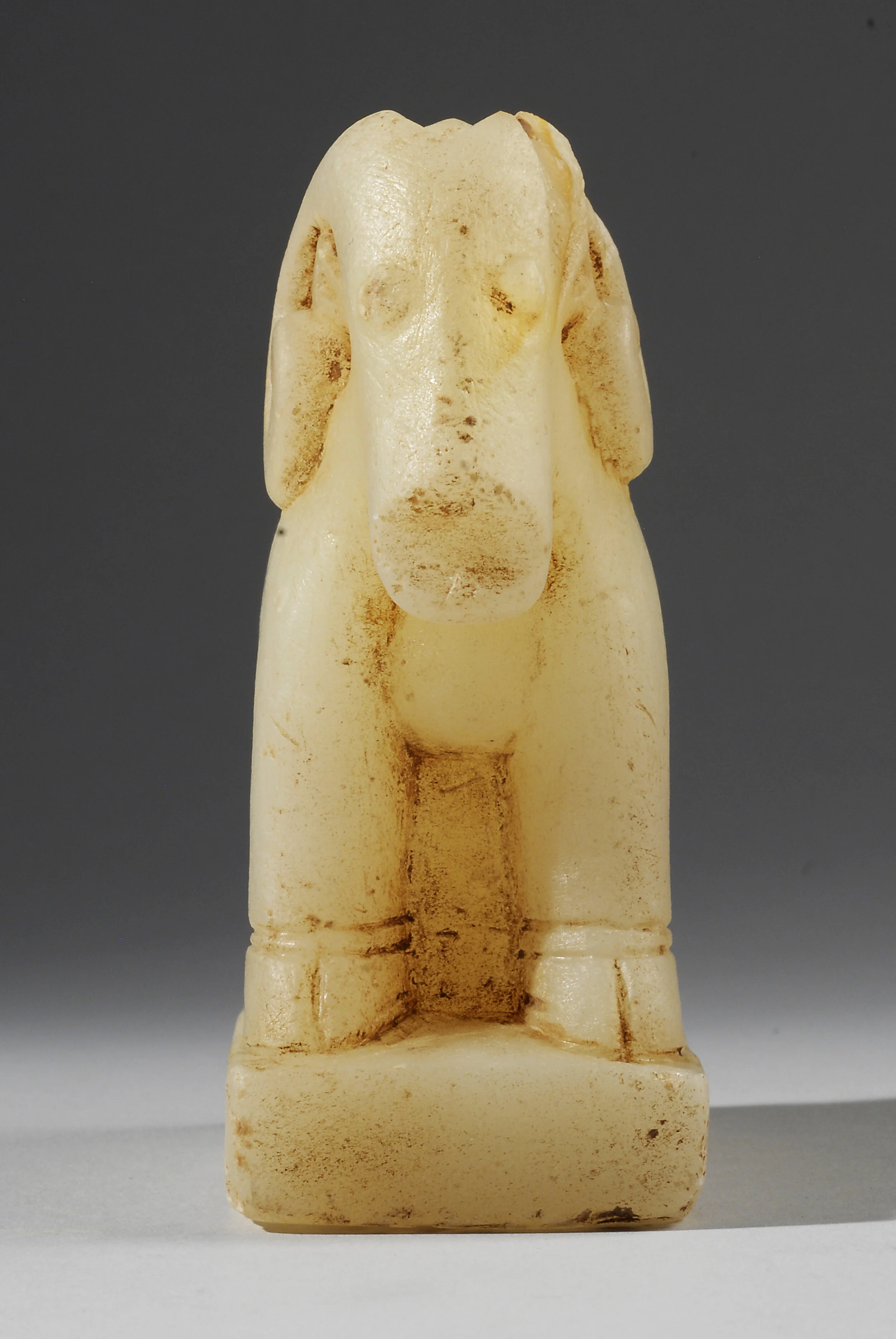
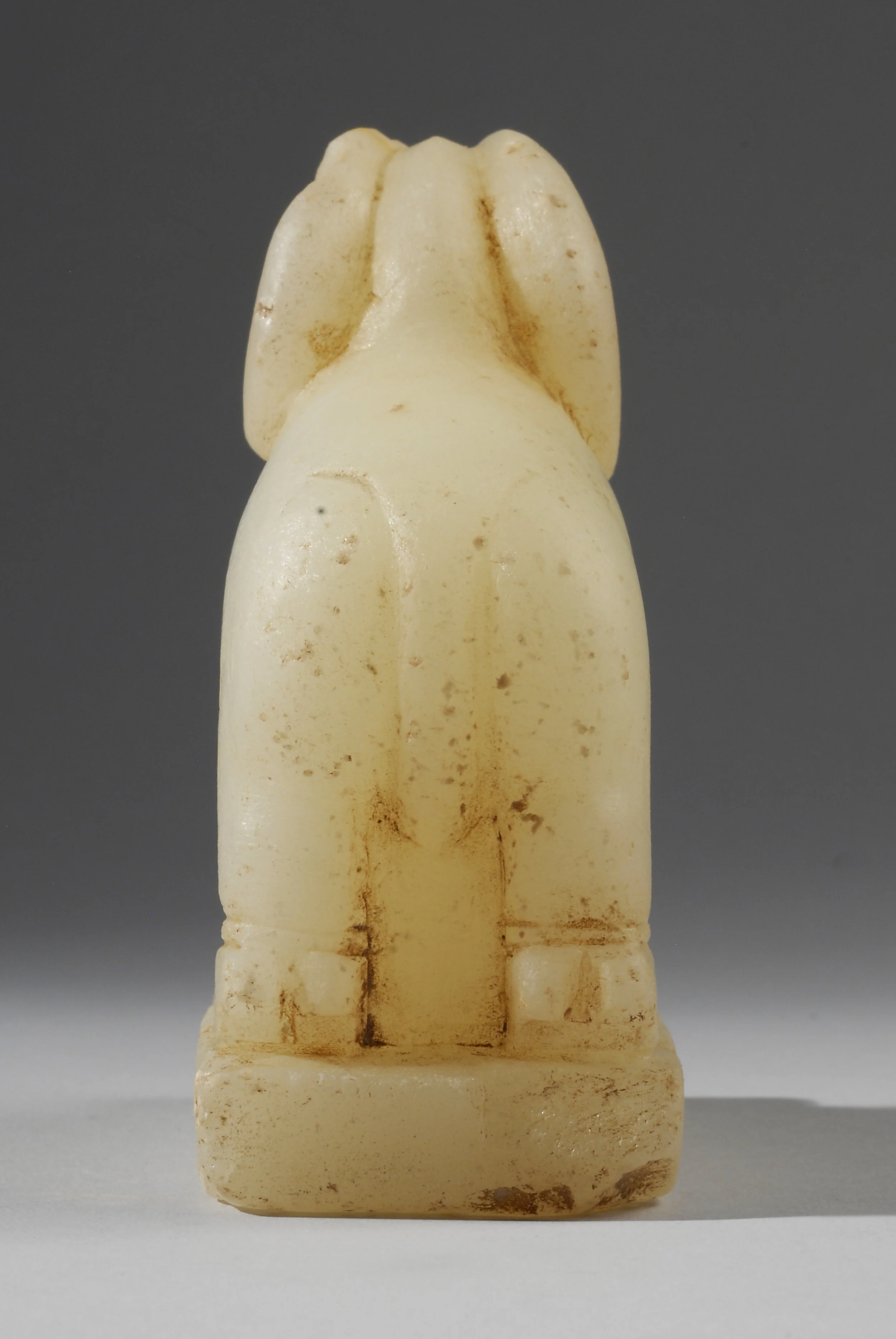
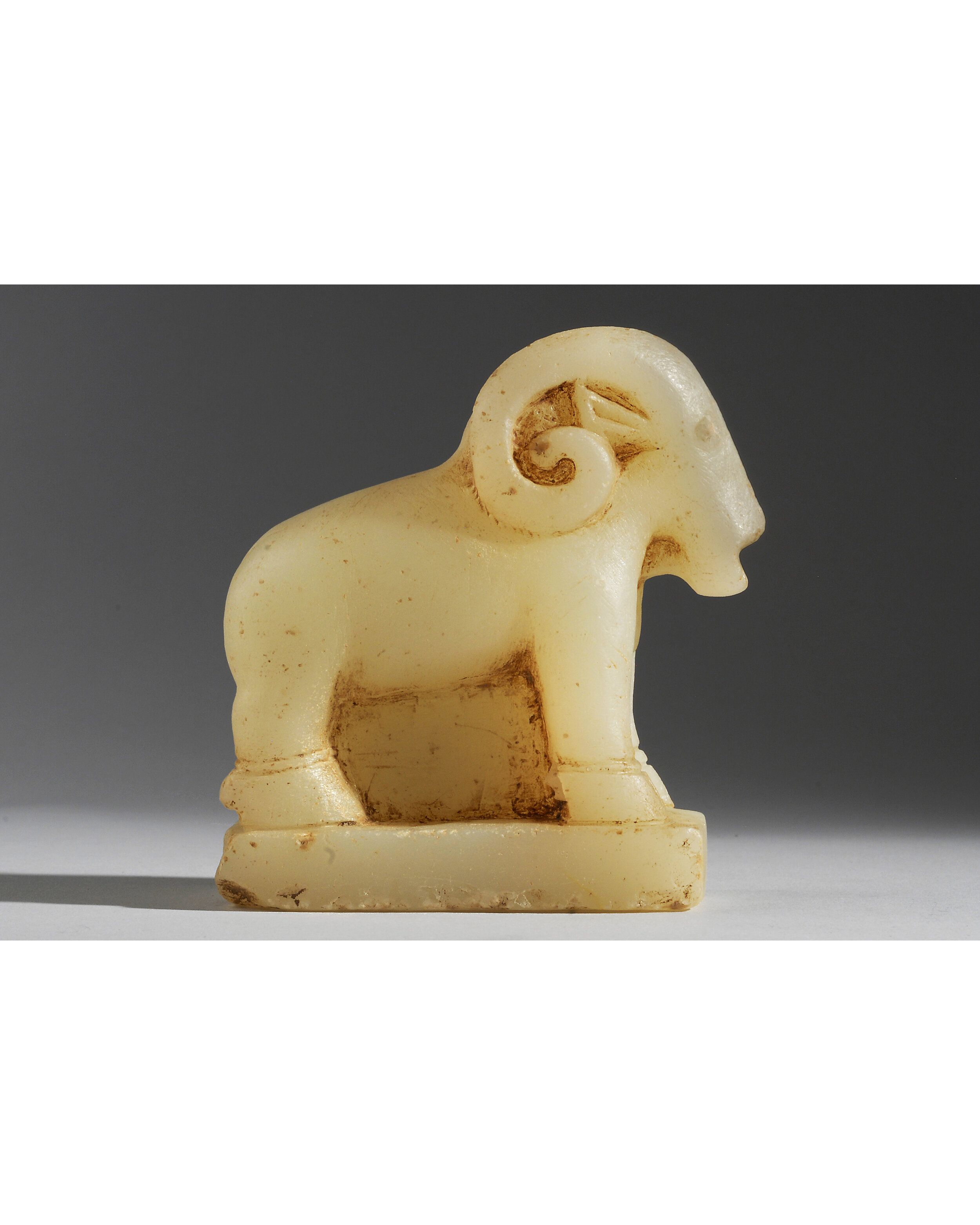
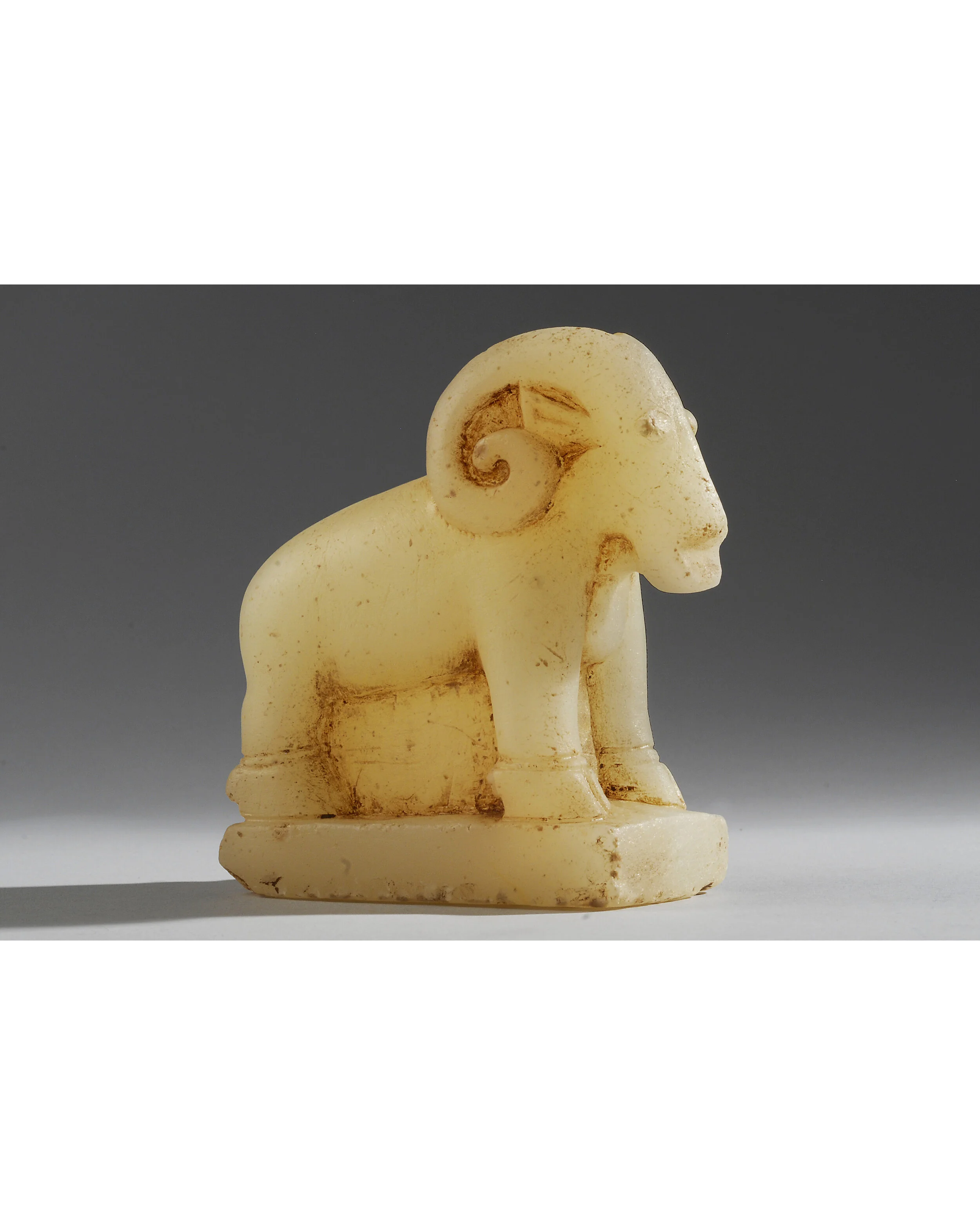
Ancient South Arabian Alabaster Ibex
South Arabian, 3rd – 1st century B.C.
Alabaster
H: 9.3 cm
Serial: 19075
PROVENANCE: Ex- German private collection, 1985
This beautiful statuette, carved from a small rectangular alabaster block, represents an ibex standing on a small pedestal, in a rigid and frontal pose. The shapes, particularly attractive to the modern eye, are simple and stylized, but leave no doubt as to the species identity: a squat and powerful body, short and strong legs with well-marked hooves, spiraled horns, a goatee, pointed ears, a truncated muzzle. The artist skillfully alternated rounded and polished volumes with linear incisions to achieve the rendering of the forms.
The ibex is a favorite subject of ancient Yemen art: the faithful portrayed that animal in order to attract the favors of god Ta'lab Riām, venerated especially in the area of Sanaa (the temple of Huqqa, a little north of the city, is dedicated to him); this figure of the South Arabian pantheon was the god of rain and fertility and, at the same time, a protector of the sheep flocks: the ritual ibex hunting, attested by many ancient inscribed funerary steles, is an ancestral practice still surviving today.
The study of South Arabian civilizations is a recent branch of archeology. Geographically, the concerned territories roughly correspond to present-day Yemen: in ancient times, they were referred to as Arabia Felix, because of the rich caravan trade and the Incense Route. The Kingdom of Sheba, famous for reasons that depend more on mythology than history (tale of the Queen of Sheba and King Solomon, recounted by the Bible, the Talmud, the Koran and the medieval Christian traditions) and that of Qatabân, better studied and artistically more significant than the previous one, are the best documented and most renowned kingdoms that developed in these regions. Among the distinctive features of this culture, one can mention the highly decorative script (Semitic language) and the artistic production, characterized by the use of alabaster, and by a unique and specific style.







